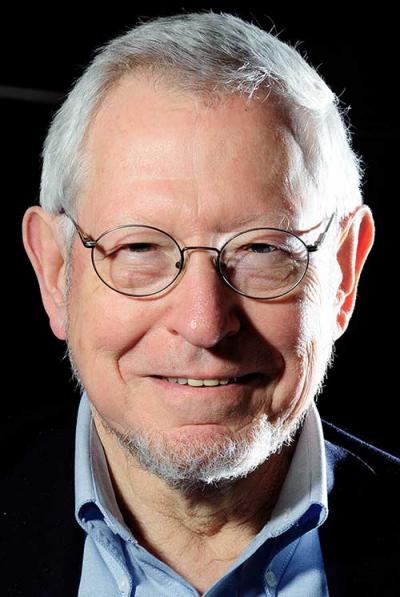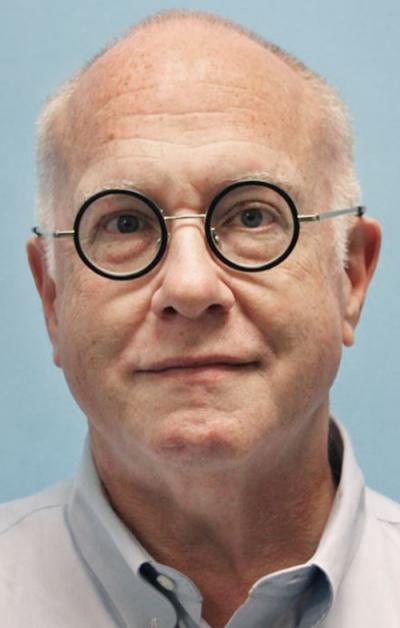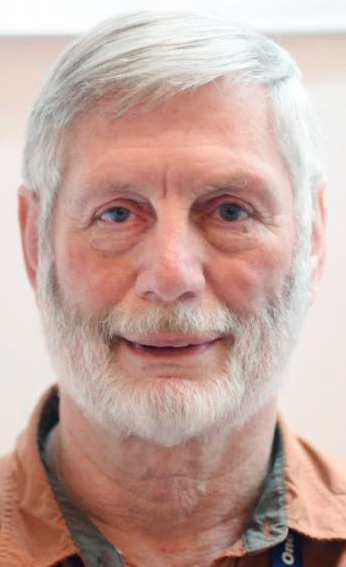

 Within the next year, the ICANN Board may well face a decision that will help determine whether ICANN is capable of serving the global public interest or whether it is degenerating into an industry-controlled self-regulatory association. The issue can be framed quite simply: will ICANN approve a process for the creation of a new wave of new generic top level domains that will include "closed generic" gTLDs?
Within the next year, the ICANN Board may well face a decision that will help determine whether ICANN is capable of serving the global public interest or whether it is degenerating into an industry-controlled self-regulatory association. The issue can be framed quite simply: will ICANN approve a process for the creation of a new wave of new generic top level domains that will include "closed generic" gTLDs?
 Every four years – as it has done for nearly a hundred years – the ITU-T as the world's only global intergovernmental standards body for all telecommunication, invites its 196 sovereign state members to a meeting where they examine their work and set the stage for the next four years. There is no treaty prepared, but they do examine major developments and decide needed standardization work, priorities and structure of the organization itself – including their leadership.
Every four years – as it has done for nearly a hundred years – the ITU-T as the world's only global intergovernmental standards body for all telecommunication, invites its 196 sovereign state members to a meeting where they examine their work and set the stage for the next four years. There is no treaty prepared, but they do examine major developments and decide needed standardization work, priorities and structure of the organization itself – including their leadership.
 Last month INHOPE, a global trade association of child abuse reporting hotlines, rejected a joint call from Prostasia Foundation, the National Coalition Against Censorship, Article 19, and the Comic Book Legal Defense Fund, that its members should stop treating cartoons as if they were images of child sexual abuse. As our joint letter pointed out, INHOPE's conflation of offensive artwork with actual abuse images has resulted in the misdirection of police resources against artists and fans...
Last month INHOPE, a global trade association of child abuse reporting hotlines, rejected a joint call from Prostasia Foundation, the National Coalition Against Censorship, Article 19, and the Comic Book Legal Defense Fund, that its members should stop treating cartoons as if they were images of child sexual abuse. As our joint letter pointed out, INHOPE's conflation of offensive artwork with actual abuse images has resulted in the misdirection of police resources against artists and fans...
 No, this topic hasn't yet been exhausted: There's still plenty more conversation we can and should have about the proposed sale of the .ORG registry operator to a private firm. Ideally, that conversation will add more information and more clarity about the issues at stake and the facts that underpin those issues. That's why I'm planning to attend today's event at American University where the sale's proponents, opponents and undecideds will have a tremendous opportunity to better understand one another.
No, this topic hasn't yet been exhausted: There's still plenty more conversation we can and should have about the proposed sale of the .ORG registry operator to a private firm. Ideally, that conversation will add more information and more clarity about the issues at stake and the facts that underpin those issues. That's why I'm planning to attend today's event at American University where the sale's proponents, opponents and undecideds will have a tremendous opportunity to better understand one another.
 Most of us, when we go to a website and see the little lock at the top of the browser, don't think twice and trust that we are communicating with the right company or organization. However, this is no longer the case because of a rather radical development that has largely occurred without notice or intervention by almost everyone. The web now has its own rapidly spreading version of CallerID spoofing that is about to get worse.
Most of us, when we go to a website and see the little lock at the top of the browser, don't think twice and trust that we are communicating with the right company or organization. However, this is no longer the case because of a rather radical development that has largely occurred without notice or intervention by almost everyone. The web now has its own rapidly spreading version of CallerID spoofing that is about to get worse.
 Very few African states today have developed a national cybersecurity strategy or have in place cybersecurity and data protection regulations and laws. Yet, the continent has made major headway in developing its digital ecosystem, and moreover, it is home to the largest free trade area in the world, which is predicted to create an entirely new development path harnessing the potential of its resources and people.
Very few African states today have developed a national cybersecurity strategy or have in place cybersecurity and data protection regulations and laws. Yet, the continent has made major headway in developing its digital ecosystem, and moreover, it is home to the largest free trade area in the world, which is predicted to create an entirely new development path harnessing the potential of its resources and people.
 On January 28, the UK government was set to announce whether it would allow Huawei, the Chinese information and communication technologies provider, to develop its 5G infrastructure. Given Brexit and its need to form new alliances, the decision was marked as a significant moment for the UK's trade future. Leading up to the day of the decision, the UK was subjected to a significant amount of pressure from the United States government to reject any deal with Huawei.
On January 28, the UK government was set to announce whether it would allow Huawei, the Chinese information and communication technologies provider, to develop its 5G infrastructure. Given Brexit and its need to form new alliances, the decision was marked as a significant moment for the UK's trade future. Leading up to the day of the decision, the UK was subjected to a significant amount of pressure from the United States government to reject any deal with Huawei.
 Internet Governance like all governance needs to be founded in guiding principles from which all policy making is derived. There are no better fundamental principles to guide our policy making than the Universal Declaration of Human Rights, (UDHR). This article is Part 3 of a series exploring the UDHR as a guide and template for the digital governance and digital citizenship. We discuss UDHR Articles 6 through 12 and address topics such as fundamental digital values, cyberlaw, policymaking and the role of tribunals in digital governance.
Internet Governance like all governance needs to be founded in guiding principles from which all policy making is derived. There are no better fundamental principles to guide our policy making than the Universal Declaration of Human Rights, (UDHR). This article is Part 3 of a series exploring the UDHR as a guide and template for the digital governance and digital citizenship. We discuss UDHR Articles 6 through 12 and address topics such as fundamental digital values, cyberlaw, policymaking and the role of tribunals in digital governance.
 For all of us at Public Interest Registry, working to remove child sexual abuse content from the Internet isn't just a part of our work; it's our moral duty. As stewards of the .ORG community, addressing the problem head on is the only option compatible with our values. Talking about Child Sexual Abuse Materials (CSAM) is challenging and uncomfortable. It's also far too important, and prevalent, of a problem to ignore. While it's impossible to know exact numbers, online CSAM is a major, rapidly growing crisis.
For all of us at Public Interest Registry, working to remove child sexual abuse content from the Internet isn't just a part of our work; it's our moral duty. As stewards of the .ORG community, addressing the problem head on is the only option compatible with our values. Talking about Child Sexual Abuse Materials (CSAM) is challenging and uncomfortable. It's also far too important, and prevalent, of a problem to ignore. While it's impossible to know exact numbers, online CSAM is a major, rapidly growing crisis.
 Two and a half months ago, shortly after the ICANN66 meetings in Montreal, the ICANN stakeholder community was jolted by the announcement that the Internet Society (ISOC) had entered into an agreement to sell the wholly owned PIR non-profit that holds the .org registry contract. The sale was to be for $1.13B USD to the hastily assembled venture capital company Ethos Capital. The sale was presented as a done deal awaiting approval by the ICANN Board.
Two and a half months ago, shortly after the ICANN66 meetings in Montreal, the ICANN stakeholder community was jolted by the announcement that the Internet Society (ISOC) had entered into an agreement to sell the wholly owned PIR non-profit that holds the .org registry contract. The sale was to be for $1.13B USD to the hastily assembled venture capital company Ethos Capital. The sale was presented as a done deal awaiting approval by the ICANN Board.